Interview: Barry “the Fish” Melton of Country Joe & the Fish
Interview: Barry “the Fish” Melton of Country Joe & the Fish
Jason LeValley:
This is Jason LeValley: from Psychedelic Scene and I’m here with Barry the Fish Melton: from Country Joe and the Fish. Barry, thanks for taking the time.
Barry “the Fish” Melton:
Why, thank you for having me on your program.
LeValley:
How old were you when Country Joe and the Fish formed? And can you speak a little bit about how the band came together?
Melton:
Yeah, I was 17 years old old, I was living in Berkeley. Joe and I had met in the summer of 1964 playing with Malvina Reynolds, who was a singer songwriter from Berkeley, California, and we kind of played together. We at least acknowledged each other when we met. Later in 1965, Joe called me up on the phone and said, “I’m recording a talking version of my magazine”, which was named Rag Baby, quote unquote. And he had called another musician in town whose name was Dan Paik, P-A-I-K, to ask if Dan would play on his recording. Dan referred him to me and he called me on the phone and said “Hi, my name’s Joe McDonald, I’d like you to be on my new recording”. And indeed we went in this studio and half of it was with his jug band at the time and the other half was just Joe and I as a duo. And we did the recording. And then later on that summer, and I’m talking about the summer of 1965, the EP extended play 33 and a third rpm recording, which was a smaller 33 and a
We were certainly indulging ourselves in plenty of psychedelics but I don’t know that it had a great effect on the music. Who knows?
third rpm recording. I mean it had enough room for about ten or twelve minutes per side and that recording came out just in time for the teachings against the war that were held in Berkeley in the fall of 1965.
Melton:
And we performed there, we had a table where we were selling the EP’s and we actually heard that the EP had been picked up for play on Radio Moscow to show that Americans indeed were unhappy with the war and dissented. I think that’s what they were trying to show. But yeah, there we go.
LeValley:
Your music often featured socially and politically charged lyrics. Apart from protesting the Vietnam War, what were some of the key messages that you wanted to convey through your songs?
Melton:
You mean in the early LPs?
LeValley:
Yeah, in the 60s output?
Melton:
Yeah. Well, I guess the most unique part of what we were doing was overt political protest, but in fact most of the stuff we were doing was either love songs or songs about drugs.
LeValley:
Yeah, I wanted to ask you about that. Much of Country Joe and the Fish’s music is considered psychedelic and I was wondering to what extent the band was influenced by psychedelic drugs?
Melton:
Well, we were and, of course, recall that in 1965 LSD was still legal. Right, which I can use that as self-defense for my past if need be. But in any event, I don’t know what psychedelic music is, quite frankly. I mean our music was first folk music and then the secondly as it got amplified it got more spaced out than that. But psychedelic refers to drugs and I don’t know if we were psychedelic or not, I mean we were certainly indulging ourselves in plenty of psychedelics but I don’t know that it had a great effect on the music, who knows?
LeValley:
Yeah, I don’t know. Some of the songs, some more than others really, seem to be psychedelic influenced.
Melton:
Well, we knew who our audience was and they were probably engaging in psychedelics as well when we played places like the Family Dog or the Fillmore Auditorium but I don’t know if music itself can be psychedelic, I don’t know how to explain that necessarily but sure, I guess we played psychedelic music.
Courtesy of BarrythefishMelton.com
LeValley:
Okay, well your band was known for its iconic performance at Woodstock in 1969. Can you tell us about that experience and the impact that it had on your career?
Melton:
Well, to the extent that Woodstock was a cultural event that marked a place in American history, I think without being for the minute that I was in the movie that’s the best paying minute I ever spent in my life in terms of monetary compensation. Yeah. It’s not that I made a huge fortune off that minute but probably over the years it’s totaled $50,000 or more and that’s pretty incredible for a minute.
LeValley:
Sure. What was it like being young and in a popular San Francisco band in the 60s?
Melton:
Well, you know, I indulged in all the rock and roll fantasy behaviors, you know, as far, uh, drugs and women and stuff like that are concerned. And it was fun. It was fun to a point. And then it became a business, and we were very much wrapped in the financial incentives and power of it.
LeValley:
You mentioned the women. Did your band have groupies?
Melton:
Yeah, all bands have groupies.
LeValley:
Well they used to anyway.
Melton:
Yeah, well, yes we had groupies but it’s hard to distinguish between a groupie and someone– I mean, the women attracted to musicians I suppose could be termed groupies but that’s kind of a pejorative term, I think in modern usage. I guess what I’m saying is I’m not surprised there are women who are attracted to music and want to have relationships with musicians and if that’s a groupie, I suppose I was with a lot of groupies.
LeValley:
Okay. Your career has spanned several decades. How do you think the music industry and the counterculture movement have evolved since the 60s?
Melton:
It’s nowhere near the same, it’s totally scattered now. We had some unifying events back in the 60s and I believe the major two being one, the war in Vietnam and two, the use of psychedelic drugs. And we were vocal in our opposition to the war and in our support of the use of psychedelic drugs.
LeValley:
Okay.
Melton:
Yeah, over the last 50 plus years things have become much more scattered than that. There is no unified counterculture anymore, and the issues are buried right down to the very present day where we’re dealing with Israel and Palestinians or I guess mean. Folks are divided about that.
LeValley:
Right?
Melton:
Yeah.
LeValley:
It’s not as clear cut as just being against the Vietnam War.
Melton:
No, I’m against war, period, in the greater sense, and I wish these people were settling their differences in a different way. But what can I say?
Courtesy of BarrythefishMelton.com
LeValley:
Right. Well, can you share any anecdotes from your time on tour or in the studio that stand out as particularly memorable?
Melton:
Oh, jeez. Wow. Well, I mean, Woodstock was memorable, and I remember sitting out and looking over that crowd of three to 500,000 people and thinking, boy, this is big deal. But I had so many experiences during that time and with so many different people, it’s rather incredible. Today? Actually, I’m going into San Francisco. I’m living now in Petaluma, California, which is north of the city, and I’m going into San Francisco to play with my friends, who at one time were a majority of Chronicle writers. They wrote for the San Francisco Chronicle, and the group is called the Irish News Boys, and we play Irish music.
LeValley:
Sounds fun.
Melton:
Yeah, it is fun. That’s what it’s for. We don’t make much doing it, that’s for sure.
LeValley:
Well, you’ve been practicing as a lawyer, I think, since the early 80s. How do you manage a law career and a music career?
Melton:
Well, it’s left brain, right brain stuff. I think being a lawyer is very definitely left-brained and linear and much more of a reading, writing, speech, exercise. And music, on the other hand, at least when you’re playing, is much more right-brained. It’s intuitive, more so than law.
LeValley:
Right. And I know some people that really would like to be creative, but they’re doing something that’s very left-brained for a career, and they have trouble tapping into that creative side. You don’t find that to be…
Melton:
No. I didn’t go to law school or anything like that. I studied independently and became a lawyer. It was just another facet of me, I suppose, in order to get ready to pass the bar exam, I stopped reading fiction books and started reading these boring legal texts, but I absorbed it and became a lawyer.
LeValley:
And are you still doing that?
Melton:
No, I kind of stopped about a year and a half ago.
LeValley:
Okay.
Melton:
And I suppose you could call it my retirement.
LeValley:
Okay.
Melton:
But I’m not really retired. As I said, I’m going to work tonight playing music, but I’m not so captivated by the law anymore. Except, of course, I always get stuck helping my friends. I mean, they call me up and bang. I said I wasn’t going to do it, and then I’m doing it.
Courtesy of BarrythefishMelton.com
LeValley:
Right? Yeah. Okay. Are there any newer artists or musicians from this century that you admire or enjoy?
Melton:
Oh, absolutely. Tons of them. I’m a big fan of Larkin Poe, which is two women from Nashville, I think. Nashville now. But they originate from Georgia, right?
LeValley:
I’ve seen them. They’re great.
Melton:
Yeah, they’re wonderful. I’ve gone to see them live, and of course, like all my other friends, I’m a Billy Strings fan. That guy can play. I mean, he’s terrific and by the same token, I’m a big fan of Molly Tuttle, who’s from the Bay Area here. She’s a woman bluegrass guitar player, and she’s just magnificent. She’s wonderful.
LeValley:
What advice would you give to aspiring musicians or individuals who want to make a positive impact on society through their art and activism?
Melton:
Get out there. Get out there and do it. If you’re trying to make a positive impact, the only way you’re going to do it is if you’re out there trying. Music is very forgiving, at least in the beginning. You can’t want to do that and not get out there. You have to get in front of people. You have to do it. I mean, that’s the most important thing. The industry, the music industry has completely changed over the years. First it was vinyl records, and you had to try and sell vinyl records, and then it changed, I think, more to cassettes, and then it changed to DVDs, and now 98% of it is streaming.
Melton:
Yeah. Nowadays, of course, a lot of what people are doing is they get on the Internet, they go on something like YouTube, they put a bunch of free stuff up there and try and build a following without getting paid for it. And I suppose what they’re doing is…that’s the way I found Larkin Poe was on the internet, and they kind of changed songs every week, and they were putting tremendous amounts of material up there for consumption, and it was really great, and I liked it. And then they started to get out there and do gigs and stuff like that, and I became a follower, I suppose.
LeValley:
Okay, looking back on your career, what would you say is your proudest accomplishment or moment?
Melton:
I don’t know that I really have one. I work a lot in Europe, you know, and in the last year and a half or even two years, I’ve been to most of Europe. I’ve done a tour of England, I’ve done a tour of Ireland. I’ve played gigs in France, I played in Germany, I played in Italy, I played in Greece. They actually had a Barry Melton night in Athens and hosted me, you know. I get around and that makes me happy.
LeValley:
All right, good. In recent years, there’s been a resurgence in psychedelic music and culture and a renewed interest in psychedelic drugs. How do you feel about all that?
Melton:
I mean, it’s fine. I’m sorry that here in California, our governor just vetoed a piece of legislation that would have legalized mushrooms.
LeValley:
I saw that.
Melton:
Yeah. Got through the legislature okay, but not the governor, so who knows? And I saw some compelling stuff, anti-legalization stuff. Mother saying my child killed himself or something while high on LSD, and I wouldn’t want to see that happen to anyone else. I suppose it can be quite powerful, and one needs some kind of safety mechanism. I’m not sure what it is.
LeValley:
Yeah. And I think that was what Governor Newsom was saying. He agrees that psychedelics should be legalized, but that there need to be some kind of qualifications in place before that happens.
Melton:
I think that’s true, because if you’re psychotic, it’ll probably accentuate your psychosis for sure.
Courtesy of BarrythefishMelton.com
LeValley:
Yeah. Okay. What do you think of the enduring legacy of the 1960s counterculture, and how do you see it influencing today’s society?
Melton:
Boy, I don’t know. I suppose that all the natural foods markets in my area somehow can attribute their existence to the 60s and that’s a good thing.
LeValley:
Yeah.
Melton:
I suppose that the obviously permissive modern values about appearance, hair length, clothes, stuff like that have pretty much come to pass. It’s okay if you wear virtually anything and you wear your hair in whatever manner you wish, and nobody really comments about that anymore. That’s a good thing. But like I said earlier, there’s no real unification of ideas. And the best example of all is people’s attitudes toward this recent Israeli Gaza Palestinian conflict. I mean, people are not unified at all, except that everybody, I think, is unified in their desire for peace.
LeValley:
Right. All right, final question. Do you have any more plans to record?
Melton:
Yeah, I’m actually producing or I’m an executive producer. She’s really producing it. But there’s a young woman who’s been working in my band. Her name is Natalie Martell, and I’ve been working on her album. We co-wrote a couple of songs on that album that we sing together. And I’ve been on several projects recently, musical projects, but nothing of my own. I may jump back in the studio in the next several months and start to do something, but I’ve been working on a lot of other people’s stuff. I mean, it’s almost like I’m so old, I need to grandfather things in rather than be on them myself.
LeValley:
What does that mean exactly?
Melton:
Well, it means whatever success I’ve achieved, I’ve achieved it. I’m trying to help others now.
LeValley:
I see. Okay, well, that’s admirable. All right, Barry.
Melton:
It’s either admirable or terrible. You’ll have to hear the music and let me know what you think.
LeValley:
Okay. I’d be happy to.
Melton:
If you text me your address when she gets her CD out there, probably sometime after the first of the year, I’ll send you a copy.
LeValley:
Sounds great. Yep. All right, thanks, Barry. I really appreciate you taking the time, and I wish you the best of luck on everything.
Melton:
Oh, thank you so much. And have a good one.
LeValley:
Okay, thanks. Take care. Bye.
Related: Interview with Chicken Hirsh of Country Joe and the Fish
The Top 100 Psychedelic Rock Artists of All Time
The Top 200 Psychedelic Songs of the Original Psychedelic Era
Gallery
Recent Articles
Unicorn by Rio Kosta–Album Review
•
February 24, 2026
Vinyl Relics: Black Kangaroo by Peter Kaukonen
•
February 21, 2026

Loading...
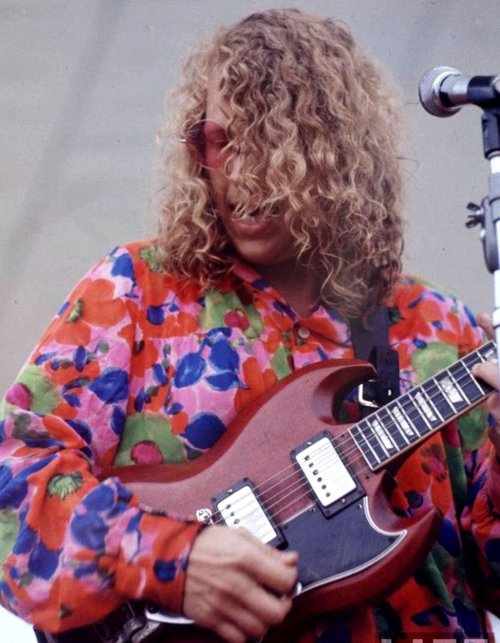
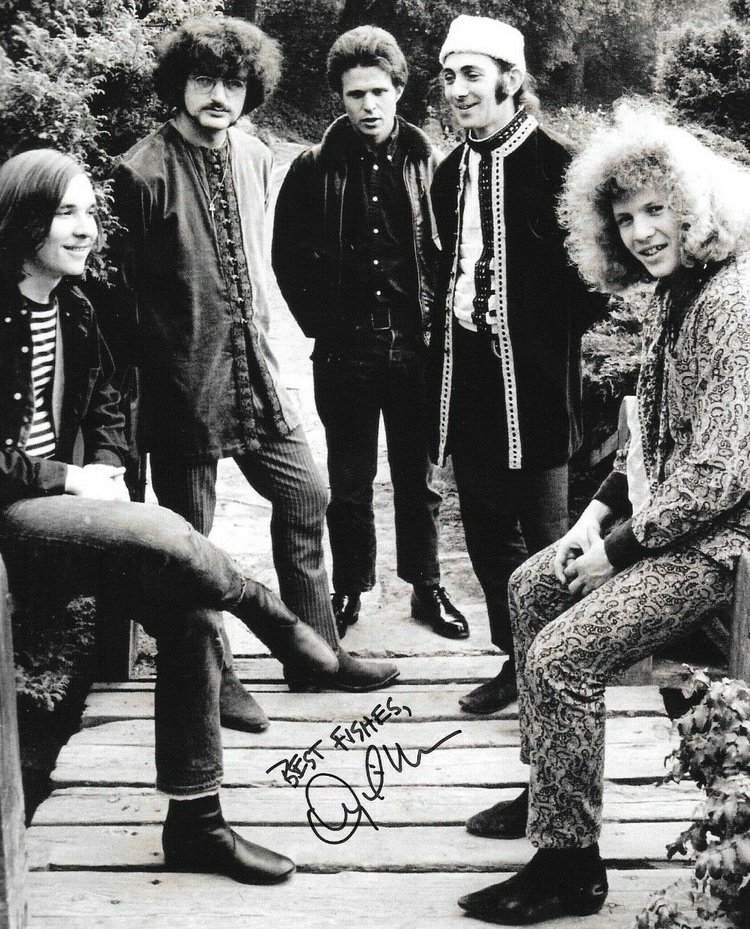
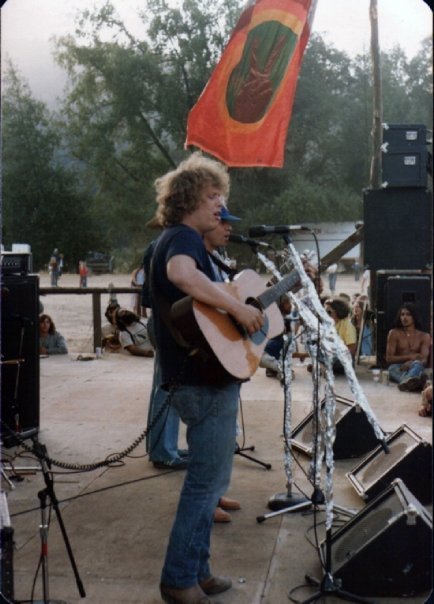
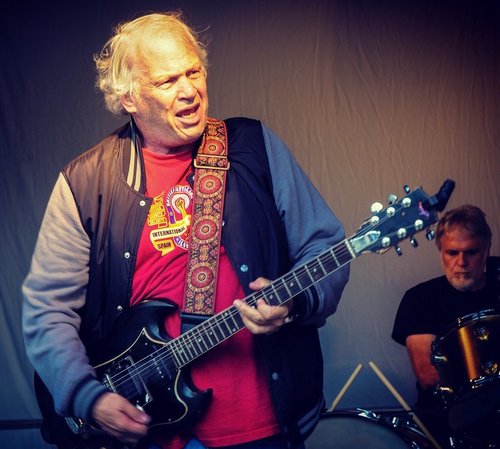


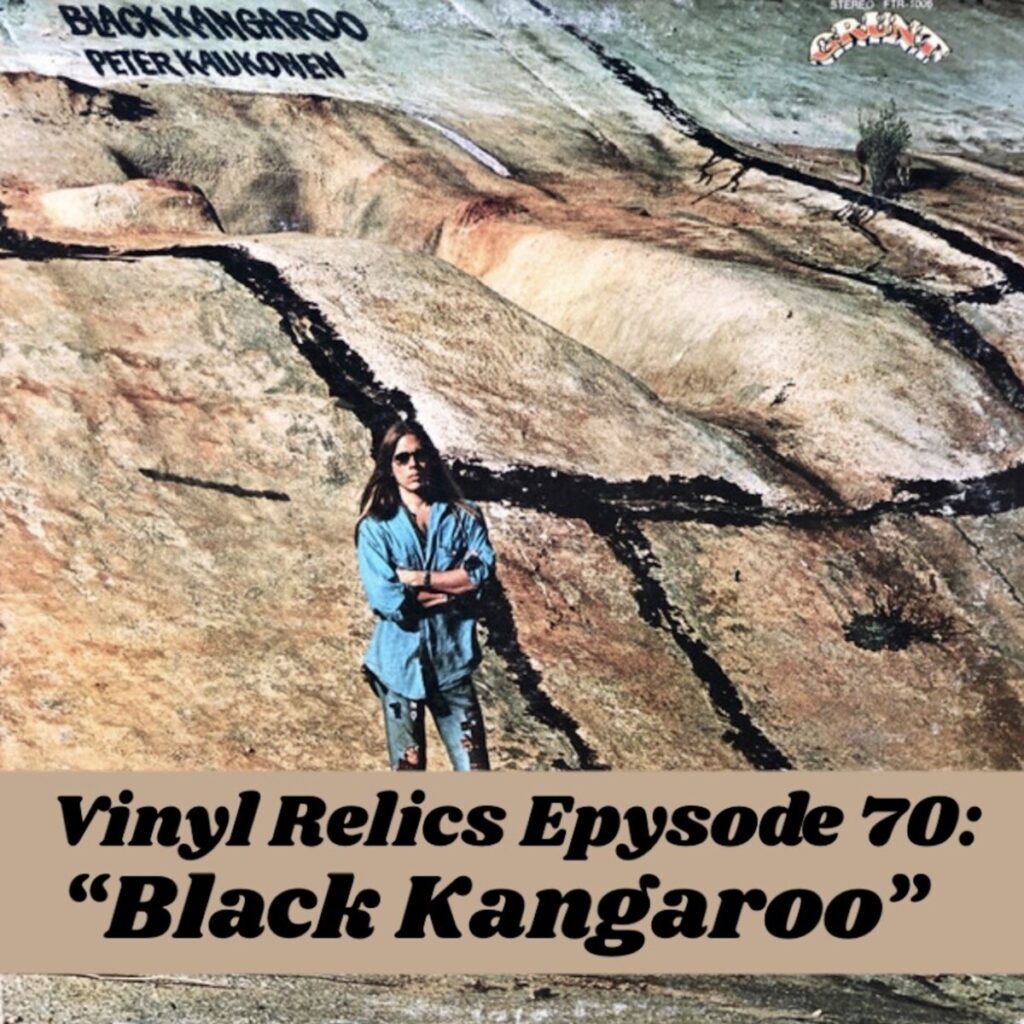
3 thoughts on “Interview: Barry “the Fish” Melton of Country Joe & the Fish”
Barry-thank you very kindly mister for helping to create a meaningful and vibrant reality for all of us. By whatever confluence of events that brought everything together as it did, there was a wealth of excellence that you had a hand in. Your humility about your very eventful life is also refreshing. I’m trying to give compliments, but people wait too long to give voice to their appreciation. At least you probably know you have a lot of fans. May you enjoy every minute of every day.
The track Eastern Jam with Melton’s memorizing fuzz guitar is one of the bands best!!
Off of I Feel Like I’m Fixin’ to Die. Agreed!